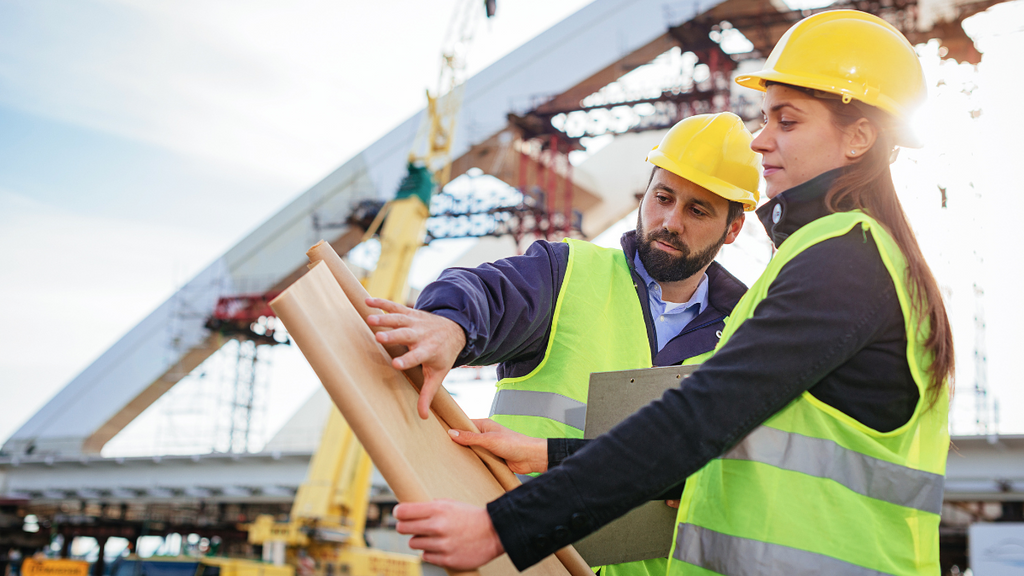Get This Report about Geotheta
Get This Report about Geotheta
Blog Article
Some Known Details About Geotheta
Table of Contents6 Easy Facts About Geotheta ExplainedThe Buzz on GeothetaThe Ultimate Guide To GeothetaNot known Factual Statements About Geotheta The Only Guide for Geotheta

They carry out site investigations, gather examples, carry out laboratory tests, and evaluate information to review the suitability of the ground for construction jobs - Engineer of Record. Based upon their searchings for, geotechnical designers supply recommendations for foundation design, incline stability, preserving structures, and reduction of geotechnical threats. They team up with other experts, such as engineers, architectural designers, and building groups, to guarantee that geotechnical considerations are integrated into the total job style and execution
By evaluating the habits and homes of soil and rock, they can determine possible geotechnical dangers such as landslides, soil negotiation, or incline instability. Their know-how assists avoid failures or accidents that can jeopardize lives and residential property. Right here are some thorough duties and duties of a geotechnical designer: Site Examination: Geotechnical designers conduct site examinations to collect information on subsurface conditions.
They translate the data to comprehend the residential or commercial properties and behavior of the dirt and rock, including their strength, leaks in the structure, compaction attributes, and groundwater conditions. Geotechnical Analysis and Layout: Geotechnical designers assess the information collected during website investigations to assess the security and viability of the site for building jobs. They execute geotechnical estimations and modeling to evaluate variables such as bearing ability, settlement, slope security, lateral earth pressures, and groundwater flow.
The Only Guide for Geotheta
Foundation Design: Geotechnical designers play a vital duty in creating foundations that can securely sustain the intended structure. They examine the dirt conditions and lots requirements to establish the appropriate foundation kind, such as shallow structures (e.g., grounds), deep structures (e.g (https://dzone.com/users/5183482/geotheta.html)., piles), or specialized strategies like dirt improvement. They consider factors such as negotiation limitations, birthing capability, and soil-structure interaction to establish optimal structure styles
They examine building and construction plans, monitor site tasks, and perform field evaluations to confirm that the layout suggestions are complied with. If unpredicted geotechnical problems emerge, they assess the scenario and supply recommendations for remediation or changes to the layout. Risk Evaluation and Mitigation: Geotechnical designers assess geotechnical threats and dangers related to the task site, such as landslides, liquefaction, or dirt erosion.

Cooperation and Communication: Geotechnical designers function very closely with various other professionals included in a task, such as engineers, architectural engineers, and construction groups. Effective interaction and partnership are necessary to incorporate geotechnical factors to consider right into the overall job layout and construction process. Geotechnical engineers supply technological proficiency, answer inquiries, and make sure that geotechnical needs are satisfied.
The 6-Second Trick For Geotheta
Right here are some kinds of geotechnical engineers: Structure Designer: Foundation engineers specialize in developing and assessing foundations for frameworks. They analyze the dirt problems, tons needs, and site attributes to figure out one of the most suitable foundation type and design, such as shallow foundations, deep structures, or specialized techniques like stack structures.
They review the factors affecting slope security, such as dirt properties, groundwater conditions, and incline geometry, and develop methods to protect against incline failures and minimize threats. Earthquake Engineer: Earthquake engineers concentrate on analyzing and creating structures to withstand seismic forces. They analyze the seismic danger of a site, evaluate soil liquefaction capacity, and establish seismic style requirements to guarantee the security and durability of frameworks during earthquakes.
They execute field testing, accumulate examples, and analyze the collected data to define the dirt buildings, geologic developments, and groundwater problems at a website. Geotechnical click to find out more Instrumentation Designer: Geotechnical instrumentation designers focus on tracking and measuring the habits of soil, rock, and structures. They install and preserve instrumentation systems that monitor aspects such as dirt negotiation, groundwater degrees, incline movements, and structural displacements to analyze performance and give early warnings of prospective problems.
The Ultimate Guide To Geotheta
They perform examinations such as triaxial examinations, consolidation examinations, straight shear tests, and permeability tests to collect information for geotechnical analysis and style. Geosynthetics Engineer: Geosynthetics engineers specialize in the design and application of geosynthetic products, such as geotextiles, geogrids, and geomembranes. They utilize these materials to boost dirt stability, reinforce inclines, provide drain options, and control disintegration.
They often tend to be investigatory individuals, which suggests they're intellectual, introspective, and investigative. They are curious, methodical, rational, logical, and rational. Some of them are likewise social, suggesting they're kind, generous, participating, person, caring, valuable, empathetic, sensible, and friendly - Geo Tech Engineering.
In the workplace atmosphere, geotechnical designers utilize specialized software program devices to do estimations, develop designs, and examine information. They prepare records, evaluation project specs, connect with customers and staff member, and coordinate task activities. The office setting provides a favorable atmosphere for study, evaluation, and partnership with other professionals involved in the project.
The smart Trick of Geotheta That Nobody is Discussing
They often visit project sites to perform site investigations, examine geotechnical problems, and gather data for analysis. These check outs involve taking a trip to various places, in some cases in remote or challenging surfaces. Geotechnical designers might execute dirt sampling, conduct examinations, and monitor construction tasks to ensure that the geotechnical facets of the job are being executed appropriately.
Geotechnical designers also function in specialized geotechnical research laboratories. Geotechnical lab engineers function extensively in these environments, handling screening tools, operating instruments, and tape-recording information.
Report this page